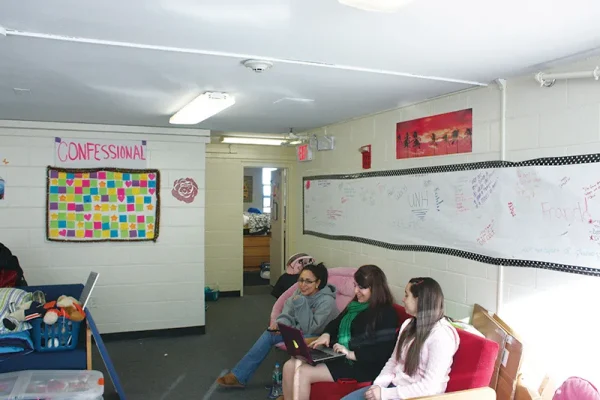Don’t Roll Back Title IX
Secretary of Education Betsy DeVos has rolled back changes made to Title IX during the Obama administration, as well as changed the way campuses deal with sexual assault.
Title IX, passed in 1972, made it illegal to discriminate against someone on the basis of sex. Its range has broadened through guidance from the Department of Education and Supreme Court decisions to cover sexual harassment and violence. If a school fails to correct hostile learning environments, then schools could lose funding.
The “Dear Colleague Letter” (DCL) was added to Title IX in 2011 and discusses the responsibilities of schools to address sexual assault. The DCL is not law, but it is strongly suggested that schools follow the procedure on how to review and carry out Title IX. It instructs schools to use the lowest standard of proof possible in sexual assault cases and allows accusers to appeal not-guilty decisions. An important facet of the DCL is that it discourages cross-examinations of accusers. This prevents re-victimization and using trauma against the victim (accuser).
DeVos is proposing a new way of addressing campus sexual assault. After meetings with her mostly male committee, she announced something called the “both sides” approach. This change affords more rights to the person accused of assault or misconduct. She bashed the DCL and asserted that it would be rescinded — and it was, just last week.
Consider the remarks of DeVos’s civil-rights head, Candace Jackson. Jackson reportedly said to the New York Times that “90 percent” of college campus sexual assault accusations occur when both parties were drunk or after a breakup. Let’s compare this with the actual statistic of false reported campus assaults, which is around between 2 and 10 percent. Jackson has since apologized for her remarks, but her words won’t be forgotten.
Even with Title IX in place, schools still find ways to get around regulations, and punishments for assault continue to be extremely lenient. More rights, than already given, to those who are accused of sexual assault is not what we need right now, or ever.
The Netflix documentary The Hunting Ground, compares the number of reported sexual assaults to the number of expulsions at a handful of colleges, and the numbers are astounding. This influences people not to report their sexual assaults. They fear attacks on their character, and they fear that nothing will be done.
Sexual assault is already a difficult crime to prove. First, it must be proven that the assault took place, and then proven that it was an assault, and not consensual sex. The character Detective Amanda Rollins in the popular television show, Law and Order: SVU compares having your car stolen to crimes of sexual assault. She explains mistrust of a person reporting a sexual assault is like asking a victim of a carjacking: “‘Are you sure you didn’t want your car to get stolen?’”
DeVos’s changes to Title IX could be devastating to victims of sexual assault and could prevent people from coming forward, as well as end important protections for victims. This issue affects all of us and we must take measures to increase awareness about Title IX.

Liz Sloane is a freshman at the university and is studying psychology. Liz is a contributing writer to The Charger Bulletin and plans to become a staff...










